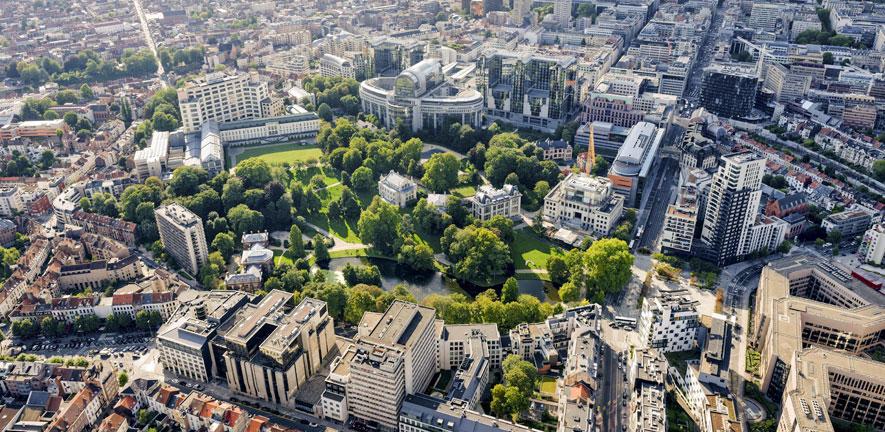
5 October 2021 - Climate change is accelerating. This summer in Brussels we felt the force of shifts in weather patterns, and witnessed the loss of 38 lives in terrible floods to the east of the capital.
Right now, across Europe increases in gas prices are hitting home, stretching the resources and capabilities of governments that already had their hands full with the pandemic and its aftershocks. Meanwhile domestic and global climate policy announcements are arriving thick and fast. In the context of this new fragile normal, how can the EU Green Deal could keep up with the speed and breadth of change, holding true to its central premise of delivering climate neutrality by 2050 and bring about economic growth and prosperity?
Beyond the unleashing of the EU’s recovery funds, the European Commission has now delivered its groundbreaking Fit for 55 package renewing and strengthening the EU’s holy trinity of the EU ETS, the Renewables Directive and the Energy Efficiency Directive. Alongside these run a phalanx of important updates on infrastructure, fuels, CO2 standards for cars and the long-outdated Energy Taxation Directive. New elements have also been included to find a balance to suit the positions of key EU Member State. Most controversial among these being the proposed extension of the EU ETS to transport and buildings, backed by a new social fund, and the proposed Carbon Border Adjustment Mechanism.
Fit for 55 is an enormously ambitious and comprehensive package of legislation, and a major step towards achieving the EU’s climate goals. It makes a clear case that increased climate action can yield significant economic benefits. The current acceleration and global shift towards climate neutrality will require the transformation of economies and lead to the development of huge new markets for clean technologies and products, providing opportunities for economic growth and job creation. Moving away from fossil fuel dependence will also support the future resilience of the economy against price shocks and the short termism of investments that do not consider climate risks.
As the expected and unexpected bumps along this road are felt, this package can help economies stay focused on the prize of a stable net zero future. But this will require alignment across the full raft of measures. The impact of the package will depend on the integrity of all its moving parts.
The EU needs to carefully plan and resource the mitigation of adverse social and distributional impacts, with support for businesses and people. This should include laying out the overall benefits for health and wellbeing for people, as well as the development of a comprehensive vision to build the workforce needed for the green economy. Identifying the skills required to fill climate neutral and circular economy related jobs in sectors such as energy, transport and the built environment will be a key to success. The necessary high ambitions for building energy efficiency and electrification of road transport will need to be backed up by policies that make these solutions more attractive and affordable, in addition to increasing the cost of high carbon incumbents.
In hard to abate sectors, including heavy industry, most low-carbon technologies are at the very early stages of development. Fit for 55 will need to be backed by industry and environment policies that support basic research, facilitate market entry and demand-side measures to create markets for low carbon materials and products. There is scope to further link climate and circular economy policies to develop policy measures to promote circular economy processes and encourage sustainable consumption by households and business. As the acceleration of climate change becomes more established, the EU will also be challenged as to how to incentivise increases beyond 55 per cent emissions reductions as changes in technology and circumstances enable more rapid action.
The challenge of implementing the Fit for 55 policies across diverse Member States with varying levels of resources, while supporting businesses and communities through the transition, should not be underestimated. The package has the ability to comprehensively address a multitude of complex and interrelated issues provided that some improvements are made. It will be critical for the European Council and Parliament to hold a steady course that keeps its level of ambition intact and maintains its cohesiveness. The measures within the package must not themselves be used as the bargaining chips to placate European tensions, but rather as a way to overcome a series of challenges for the benefit of the climate, the economy and people.
Recently UK Prime Minister Boris Johnson suggested the upcoming COP26 negotiations may herald the beginning of the end of climate change. The extent to which this is true remains to be seen; what we must ensure is that the final Fit for 55 package maintains and shores up ambition, offering a prototype for climate strategies across the world.






